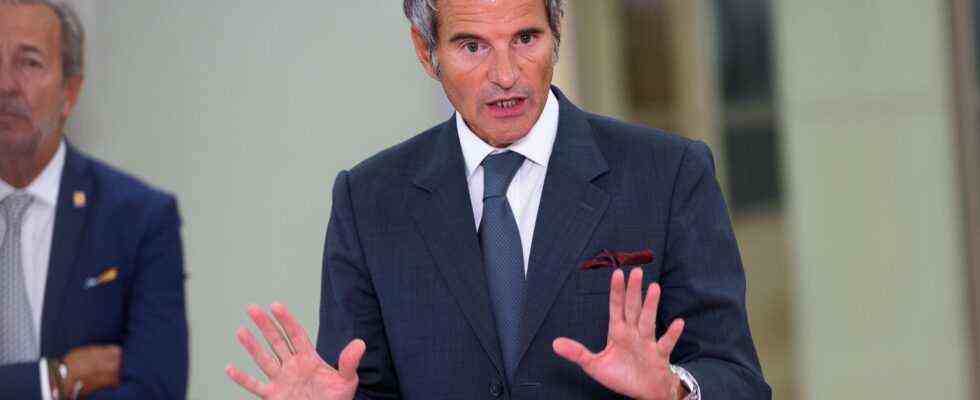Status: 13.09.2021 8:32 a.m.
After the progress in the dispute over the Iranian nuclear program, the head of the international atomic authority IAEA, Grossi, sees a slight easing of the situation. There is now “time for diplomacy”.
According to IAEA Director General Rafael Grossi, the agreement reached between the International Atomic Energy Agency (IAEA) and Iran on monitoring technology in Iranian nuclear facilities has created time for negotiations. It was a “bridge, a measure to create time for diplomacy,” said Grossi after his return from the negotiations in Tehran.
The “most pressing problem” was solved with the agreement reached on Sunday. His talks in Iran were “open”, said the IAEA chief. Communication with Iran about the nuclear program is now “restored”. He had been invited to return to Iran “very soon”.
Yesterday, Iran allowed the IAEA inspectors to service the surveillance cameras in the country’s nuclear facilities and replace the hard drives.
IAEA gets access “within a few days”
According to Grossi, the inspectors would now have access to the surveillance technology “within a few days” and, after several months of uncertainty, could ascertain whether it was working correctly. This will enable the IAEA to “maintain continuity” with its knowledge of the Iranian nuclear program.
However, only the IAEA’s access to the surveillance technology was agreed, not to the collected data itself. The organization will only have access to the recorded data if there is an agreement in the talks on a restart of the 2015 nuclear deal with Iran, said Grossi. Only then can the “puzzle” be put together.
Iran had denied the IAEA access to real-time camera images and other data from the surveillance systems installed by the organization in Iranian nuclear facilities for several months since February. The IAEA was therefore concerned that data could be lost.
Biden wants to revive nuclear deals
The international nuclear agreement of 2015 is intended to prevent Iran from building nuclear weapons. Among other things, the country committed to restrict its uranium enrichment capacities and to allow regular inspections of its nuclear facilities. In return, international sanctions against Iran were lifted.
In 2018, however, under the then President Donald Trump, the United States unilaterally withdrew from the agreement and again imposed massive sanctions. Thereafter, Tehran also gradually withdrew from the agreement.
US President Joe Biden, who has been in office since January, is fundamentally ready to revive the nuclear agreement, but makes it a prerequisite that Tehran once again abide by its commitments.
IAEA chief: Most pressing problem resolved during visit to Iran
Karin Senz, ARD Istanbul, September 13, 2021 8:42 am

